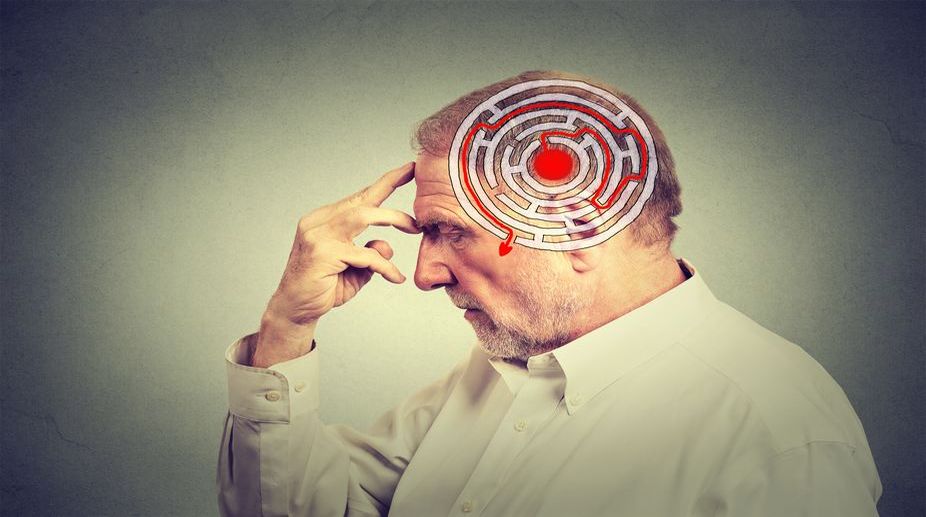Wendy Williams diagnosed with aphasia and dementia
Wendy Williams' team confirms her diagnosis of aphasia and dementia, aiming to dispel rumors and raise awareness.

Representational image (Photo: Getty Images)
The elegant dinner was interrupted by a piercing scream. Earlier in the evening I had asked about uncle Deep, a livewire conversationalist who liked me, and was told that he was unwell.
My host ran to see the reason, and I came out on the corridor. A loud stream of obscenities followed screams. Before anyone could stop me, I advanced and had glimpse of an inconceivable scene.
Uncle Deep, naked except for a diaper and chained to a bedpost, was foaming at the mouth as he yelled one foul word after another. Later the family apologetically explained that Uncle Deep periodically ‘goes off the handle’ and has to be shackled for his own safety.
Advertisement
Barin was a college friend who had gone on to become a doctor and eventually the chief of a hospital’s pathology department. Whenever I visited the town where he lived with his wife Mila and two daughters, we had a drink together and a long conversation.
A strange thing happened last year when Mila told me he wasn’t well and she would rather not have me come to meet him. When I asked what was wrong with him, she was evasive. When I asked other friends, I found Barin had stopped working or Mila had started barring all friends.
Apparently he acted strangely, talked incoherently and did not recognize old friends. The third experience was with my cousin, Ranjit, an able journalist who enjoyed a good reputation both in his newspaper group and in professional circles.
He covered business news and was as diligent as he was knowledgeable about emerging commercial trends. When I didn’t hear from him for two months, I thought it was unusual and went to see him. A voluble man he had suddenly turned taciturn and responded to all my overtures in monosyllables.
His brother called it ‘a streak of depression,’ but after he was taken to a specialist at my insistence, it was diagnosed as the onset of dementia. The toll of Alzheimer’s is extensive: it claims a victim nearly one every minute.
Forty seven million people worldwide have Alzheimer’s, costing $700 billion each year; the figure is expected to double in twenty years. After heart attack and cancer it is the biggest killer. There is no cure and no prevention.
There are a couple of expensive drugs that can marginally modify the havoc, but there is nothing to fight the disease. Imagine this insidious blight attacking your father, mother, brother or sister (women seem statistically more vulnerable) – or yourself.
Day by painful day, it will shrink and atrophy your brain tissue. The first thing to go will be your memory: you will start by forgetting little things and end up by failing to recognize your wife and your own face. You will lose money and valuables; then you will get lost yourself, because you can’t find your own home.
Then you will start losing your mental functions, those that make you human. You will lose your language, reasoning capacity, any kind of systematic thinking. You will forfeit the ability to do any step-by-step thing, like dressing or feeding yourself, and become fully dependent on others.
Then will come hallucinations, delusions and paranoia, resulting in impulsive and offensive behavior. The ultimate stage is when you are confined to bed as your body starts shutting down. What makes it worse, as my experience shows, is that the whole phenomenon of dementia is wrapped in misunderstanding, shame and sheer ignorance.
Few families have the vast coping skills, extensive support network and huge caregiving stamina and budget needed to deal with an Alzheimer patient. Even fewer have a basic knowledge of the way the disease can change a person’s behavior and make him or her seem uncooperative, resistant, stubborn or just monstrous.
Family members then try to isolate and hide the person, aggravating the victim’s physical and mental decline. Some even shackle and confine the patients like animals, shorn of all dignity, ostensibly for their own safety. Given the growing threat of dementia that hangs over us all, the first step may be to know something about Alzheimer’s, its symptoms and consequences.
We could learn how to identify the signs, when to consult a specialist, and why we need a strategy for coping and care-giving. It may be a little better than to chain your mother or brother in a back room or cling to the vulgar fiction that they are possessed by a malevolent devil.
The writer is a Washington-based international development advisor and had worked with the World Bank. He can be reached at mnandy@gmail.com
Advertisement